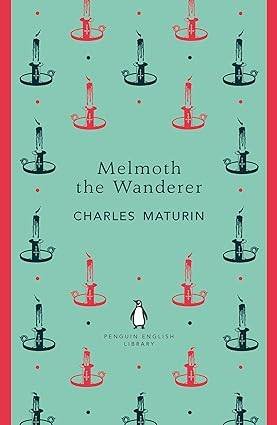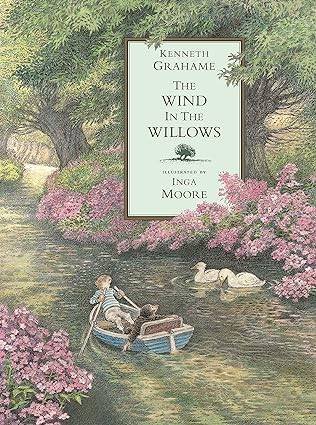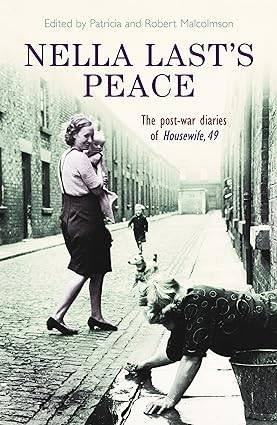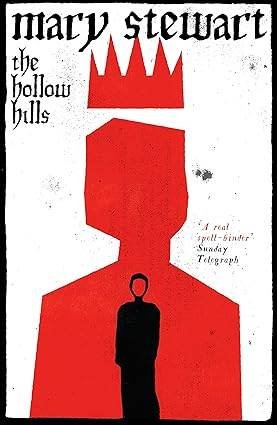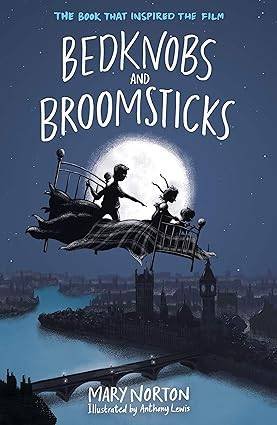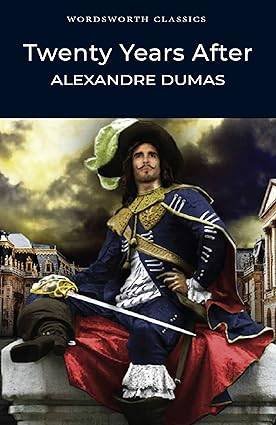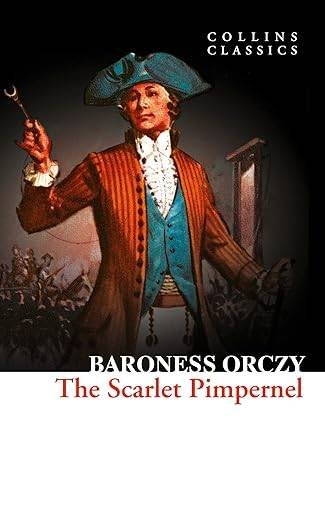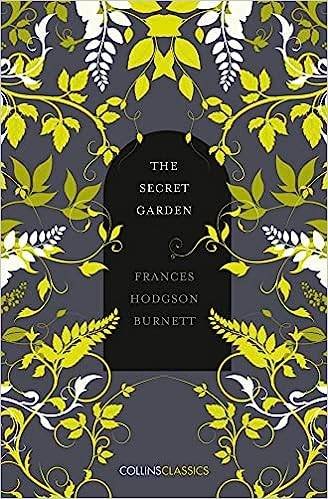Home » Book Reviews » Carlos Ruiz Zafon » The Angel’s Game by Carlos Ruiz Zafon
Possible spoilers ahead
This is one of the most interesting, fascinating, and thought provoking books I’ve ever read, in fact it’s so thought provoking that I don’t feel I’ve ever stopped mulling it over since I first read the book and I have re-read it a couple of times since and have just come up with more questions rather than answers. It’s an amazing book, thoroughly enjoyable, very clever and involving, part supernatural, part thriller, part detective story, and possibly other parts too that I haven’t even fully grasped. And even writing these few lines makes me feel like I ought to immediately re-read the book again as I just don’t feel like my review is doing the book justice, mostly because I’m just pondering endless questions rather than actually reviewing!
The book is about David Martin who lives in an old abandoned mansion in Barcelona, writing books, and who is intrigued by the past occupant of his house, Diego Marlasca. Strange things begin to happen to David, seemingly orchestrated by a mysterious man called Corelli who has asked David to write a religious book. It seems like David is the third person that Corelli has employed to write this book for him. The first person was an author called Lambert in 1914 and Corelli poached Lambert from a rival publishing house when Lambert was ill and dying and paid him a huge sum of money to write the book, but Lambert ended up wanting to destroy the book he’d written so set fire to the book and himself and Corelli’s publishing house. The second person was Marlasca who left his job as a lawyer to become a writer and who hid the completed book in the Cemetery of Forgotten Books and David finds this book there. Then there is David, who is dying from a brain tumour, and he is offered a huge sum by Corelli to write this book. David visits places which he later learns have been long destroyed, people that thwart him seem to suddenly and conveniently end up dead soon after, people that David tries to question about Corelli then die, and things also don’t add up about Corelli such as his Editions de la Lumiere publishing house having actually closed down in 1914 when Corelli also apparently died. David then realises he is in danger himself, but is unsure of where the danger comes from and discovers many seemingly inexplicable things and many strange coincidences.
The book that David found in the Cemetery of Forgotten Books was Lux Aeterna and was written by Diego Marlasca. Ricardo Salvador, a police officer, tells David that he believes Jaco Corbera wanted Marlasca’s money and so killed Marlasca by setting fire to him at a rooftop reservoir, which is the same location that David first met Corelli. But Salvador actually turns out to be Marlasca!!! He then tries to kill David in David’s house, where he has been hiding all this time. Marlasca had previously tied Salvador to a chair there and left him to die. David sets fire to Marlasca. David leaves Barcelona and writes this book, The Angel’s Game’, while in his beach hut. When Inspector Grandes investigates David’s story, he finds that Dr Trias (who David consulted about his illness) has been dead 12 years, there is no bank account in David’s name, it was David that transferred the money to the lawyer, the gravestone with David’s name on was commissioned and paid for by David, and Corelli’s house Guell Park is abandoned with no pictures or prints. Ok, that’s the basic storyline but there is oh so much more to it and sooo many oddities and coincidences and questions.
One of the main things that confused me is that this book is written after The Shadow of the Wind and has several references to things in that book, but it is actually set before the time of The Shadow of the Wind, so I did spend a lot of time whilst reading The Angel’s Game trying to puzzle out dates and which Sempere was the character from The Shadow of the Wind, but once I’d got the timings straight in my head I was fine, though I think whenever I re-read these books I’ll read The Angel’s Game first and then The Shadow of the Wind, just to properly follow things in the right order. So the Sempere Snr in The Angel’s Game is Daniel’s (from Shadow) grandfather, Sempere Jnr in The Angel’s Game is Daniel’s father who marries Isabella on 18 Jan 1935, and Daniel from The Shadow of the Wind is their newborn baby, and his mother, Isabella, dies from cholera on his fourth birthday. The Angel’s Game begins in 1917, so way before the 1940s-1950s that The Shadow of the Wind is set in. David, from The Angel’s Game, was born in 1900, with the story in Angel’s Game going up to 1930.
I loved that many of the same places and characters from The Shadow of the Wind appear in this book too, not just the Semperes and their lovely bookshop on Calle Santa Ana, but also Gustavo Barcelo, the second-hand bookseller. And of course, the wonderful Cemetery of Forgotten Books, which I never tire of thinking and dreaming about, and this book has more description of this wonderful place with more details from Isaac Monfort, who runs it, about its history and its location in a dark alley off The Ramblas. I also loved David taking Isabella to the Cemetery of Forgotten Books and her asking if she can tell Sempere Jnr about it, which she presumably does and he then in turn takes his son, Daniel, there, I loved seeing how this link was formed. There are also similar themes in both books, such as the main characters being motherless, them both having angry and unhappy and hurt fathers, and them both being poor boys given a chance by a rich benefactor, and also both falling in love with daughters of powerful men. I can’t help comparing the two books though, and as much as The Angel’s Game fascinates me, I kind of felt it didn’t seem to flow as well as The Shadow of the Wind, and doesn’t seem as beautifully or poetically written, I felt in this book the descriptions are more of people rather than of the beautifully described buildings in The Shadow of the Wind.
I loved that David’s favourite book is Great Expectations by Charles Dickens, which is one of my favourite books also, and David describes Dickens as being ‘a lifelong friend’ which I can fully comprehend and love the image of. Although then I start wondering why Zafon chose this book as David’s favourite, are there similar themes in them apart from Pip’s destiny being controlled in some part by his benefactor and him despising this benefactor, like Corelli being David’s benefactor and David despising him. I can’t think that David’s life replicates Pip’s really, but I am so desperately looking for answers in The Angel’s Game that I’m prepared to consider that Great Expectations may give me some!
And although there is lots of violence in the book (several brutal murders and deaths and lots of people dying by fire, and David’s father being shot infront of him, and David crushing Inspector Grandes’ windpipe and throwing him from the cable-car!), there is also lots of dry humour and amusing one-liners, for example, David’s editor believing that ‘the liberal use of adverbs and adjectives was the mark of a pervert or someone with a vitamin deficiency’, tee hee, I loved that.
I loved the suspense and gothic intrigue of it all, such as the builder saying of David’s mysterious mansion house, 30 Calle Flassaders, that the plans aren’t accurate and the size of the room at the end of the corridor should be 40 sq metres but it is 20 sq metres with a wall where there shouldn’t be a wall, as well as this room having a damp smell and a sense of someone there! I loved the setting of Barcelona as well, and it is easy to imagine these mysterious goings on and secrets undiscovered for decades in a city full of such history and grandeur and a mix of huge beautiful structures and dark little alleys, and I loved the line ‘no other family to my name but the dark city of Barcelona’.
I also loved the enthusiasm for reading and books and authors, which just shines through this whole book. And some of my favourite lines are about books, such as, ‘I stepped into the bookshop and breathed in that perfume of paper and magic that strangely no one had ever thought of bottling’, and ‘Every book, every volume you see has a soul. The soul of the person who wrote it and the soul of those who read it and lived and dreamed with it. Every time a book changes hands, every time someone runs his eyes down its pages, its spirit grows and strengthens. In this place, books no longer remembered by anyone, books that are lost in time, live forever, waiting for the day when they will reach a new reader’s hands, a new spirit’. Ooooh, that just makes it all sound so magical and wonderful.
Religion seems a big theme throughout the book, and there are some very powerful statements in this book regarding religion, it is described as ‘a moral code that is expressed through legends, myths or any type of literary device in order to establish a system of beliefs, values and rules with which to regulate a culture or a society’. Corelli’s analysis of people’s beliefs and faiths is so cynical, it is almost ranting and lecturing and is expressed so passionately and determinedly by Corelli that it makes me wonder if this is actually Zafon’s voice. Also David’s findings and summary of religion is interesting, particularly the role of women, ‘The main pillar of every organised religion, with few exceptions, is the subjugation, repression, even the annulment of women in the group. Woman must accept the role of an ethereal, passive and maternal presence, never of authority or independence, or she will have to take the consequences. She might have a place of honour in the symbolism, but not in the hierarchy. Religion and war are male pursuits. And anyhow, woman sometimes ends up becoming the accomplice in her own subjugation’.
And there is also the theme of war, I think. The aim of Corelli’s book is about religion, but it also seems to be to incite war. Marlasca’s book, Lux Aeterna, that David finds in the Cemetery of Forgotten Books definitely seems to have images of war in it, ‘storms of blood and fire pouring over cities and people. Armies of corpses in uniform running across endless plains, destroying all life as they passed. Babies strung up with torn flags at the gates of fortresses. Black seas where thousands of souls in torment were suspended for all eternity beneath icy poisoned waters. Clouds of ashes and oceans of bones and rotten flesh infested with insects and snakes.’ And David says after he leaves Barcelona, ‘I’ve seen how the inferno promised in the pages I wrote for the boss has taken on a life of its own… their pages (the newspapers) brought me stories of the war, of the world in flames that I had dreamed up for the boss’. So could it be that Corelli was ‘successful’ in his aim of inciting war with his book, with the Spanish Civil War and perhaps the Second World War being the ‘result’? And therefore would the Spanish Civil War have actually happened earlier if Marlasca hadn’t hidden the book he wrote for Corelli? And is it significant that Lambert tried to destroy his book in 1914 and this was the start of the First World War? It all blows my mind a bit! But I did have to read up about the Spanish Civil War to try and ascertain dates, etc, and it was from 1936-1939 and was known as ‘The War’ in Spain.
But I absolutely don’t feel I fully understand the book at all and I am sure there are many many subtle meanings in it that I have missed. It is a complex book with many odd things and mysterious happenings and lots of sub-plots, many of which don’t seem to be fully explained, and I found it difficult to keep track of everything. I was frantically trying to remember every character and situation while reading the book, feeling that they were all probably relevant in some way, and yet the book is so involved and complicated that it is difficult to keep track of it all. I can’t stop puzzling about the book and searching for answers, and the more I puzzle over it the more questions I have!
Obviously my main puzzlement is about Corelli, and who he actually is. When David meets him at the reservoir he notices that Corelli doesn’t blink, that his eyes are large and dark, that he appears taller than he actually is and that he seems to glide across the ground, he seems to see into future, he doesn’t age, and he has a definite feeling of menace. In the Lux Aeterna book, death is referred to ‘as a white angel with reptilian eyes’, so is Corelli actually ‘death’ or the Devil, and if so then is his idea for a new religion one that follows the Devil rather than God? Is this how he can be everywhere and seemingly jump through time to be in places that have actually burnt down, and not age himself, and know all these details about David’s life such as where he lives and his love of the Great Expectations book?
Or are David or Corelli actually one and the same person? David said he didn’t recognise his own eyes in the mirror, that they were ‘those of a stranger…murky, dark and full of malice’, so is he seeing himself then as how he is when he is Corelli? And if so, is Corelli a split personality of David’s that he himself doesn’t know exists? Perhaps when David has his headaches and dizziness, he acts like another person, ie Corelli, almost like a Jekyll and Hyde character. Or does he act as Corelli because of his brain tumour, does this change his personality, David calls the tumour the ‘tenant lodged in his brain’, and the ‘other person’, so is the tumour almost Corelli? Or is Corelli a character put into David’s head by the dummies he found at Corelli’s house, and the Lux Aeterna book he found at the Cemetery of Forgotten Books? Marlasca said that he felt he’d handed his life over to a shadow ‘who followed him and possessed the same shape, face and voice as his own’, so is this also what happened to David? And Inspector Grandes said that he noticed that David always wore an angel brooch, and we’d been told by David time and time again that Corelli always wore an angel brooch, so again does this show that David and Corelli are the same person? And both David and Corelli appear not to age, so this is another similarity between them, although David’s non-aging appears to start from when he leaves Barcelona, so does this mean he has then become more Corelli and less David? And David begins to sound more and more like Corelli in his speeches and the way he preaches to, and advises, Isabella. But then does this mean that David killed all the people we had thought that Corelli killed, and it seems that all the people that David would desire out of the way or who seem to thwart him, end up dying, usually shortly after David has visited them. There was Cristina who was going to burn his manuscript, there were the publishers who David dreamt he saw in great detail dying in flames and had told them ‘in a week you and that idiot partner of yours will be dead’, and there were the two men who attacked Isabella and who were then beaten with a metal pole and David had a metal pole and had dried blood on his cheek. Or did Marlasca kill all these people? And all that Inspector Grandes stated, about Dr Trias being dead years before, there being no bank account in David’s name, that it was David who transferred the money to the lawyer, and that the gravestone with David’s name on was commissioned and paid for by David, so is all this Corelli covering up his traces or does Corelli not exist as he is actually David? Omg, my head hurts!!
And actually who is the one who controls and influences everything the most, is it Marlasca and did reading his book then influence all of David’s actions and start all of this? Or is it Corelli? Or is it David?
I am aware that in his later books, Zafon implies that David is insane, which always disappointed me as that seems an easier plot solution rather than the the unusualness of David being possessed by some devil-like creature, Corelli. Or I guess it could be both, in that being possessed by Corelli has driven David insane. But I don’t want David to be the evil Corelli or to be insane, as I liked David. And there are a few things which seem to imply that David and Corelli are different people, such as the photo of actress Irene Sabino which shows Corelli in the background so this seems to mean that Corelli isn’t David, and also Valera is sent by Corelli to get David out of jail and surely David couldn’t have arranged this himself from within the jail so that again seems to mean that Corelli isn’t David.
So who died at the reservoir, as it clearly wasn’t Marlasca killed by Corbera? Or was this all just made up by Marlasca to make people believe that he was dead?
What does the non-aging thing mean, is there something symbolic in this, is this some characteristic of the Devil? I’ve searched on the internet for references to this but can’t come up with anything.
And the whole brain tumour thing is very puzzling. Is the dream David has where he is operated on and the tumour is removed, actually real? But if so, then who did this and how? Was it Corelli, who said that he could help David get over his illness and give him what he most desired? And at the end of the book (and in later books where David returns) there seems to be no return of the tumour.
Are the places that David visits actually real, or have they been destroyed long ago, such as the brothel that he then finds out has burnt down many years ago, the publishing house that Corelli supposedly owns but which has actually been closed down and suffered a fire many years ago, Corelli’s home that the taxi driver said he thought was empty and when David visits uninvited is covered in dust. Do these places appear and disappear at Corelli’s command because he is some magical/devil type figure? Or are they all just figments of David’s imagination?
I was intrigued by the six-pointed star that Irene Sabino carves on David’s chest, and what this symbolises. When I look up a six-pointed star, I see it has something to do with Judaism and the Star of David, so does it mean this as the main character’s name is David? But I see it is also something to do with the occult which would seem to fit more, and is used to summon spirits and spiritual forces, and it can mean the elements fire and air and water and earth. I’m undecided as to which it is meant to signify here.
And the Lux Aeterna book that David selects from the Cemetery of Forgotten Books puzzles me. When I look up these words, I see that ‘Lux aeterna’ means ‘eternal light’ in Latin and it is also something sung at Roman Catholic mass, so what is the significance of this title as that seems more a term for God than a term for the Devil (if we’re thinking Corelli is the Devil)? And on David’s final visit to the Cemetery of Forgotten Books, he finds lots of different copies of Lux Aeterna, so are all those books actually there? Or does David just now see every book as that book because his mind is twisting things? And did David, by selecting Lux Aeterna in the first place, actually put all this story into his poorly head, the book for Corelli about religion, Marlasca being in the house, etc, was he persuaded and influenced and his mind taken over by this book and was that the powerful intention of Marlasca/Corelli? Or did David actually write this Lux Aeterna book himself much earlier, on the typewriter that was already at the house when he bought the house, and he then placed the book (or books) in the Cemetery of Forgotten Books for himself to find again? Oh god, this is sending me crazy!
And how did David choose the tower house to live in, which then led to all these events? Was it just a random choice, and because he chose to live there then all these things happened to him? Or was the choice engineered by Corelli? But then there’s Marlasca who was secretly hiding in the house too, did Corelli know about him? Or was there no Corelli and no Marlasca, and I’m back to confusing myself all over again?!
What do all the dummies in Corelli’s mansion mean, there was one of Corelli, of the butler, the chauffeur, and even one of David. Was it all in David’s mind, did he visit and see these dummies and build up a story around it? But why are the dummies there in the first place?
Does the angel brooch found in David’s house show that Corelli was there? Or is this David’s brooch, as Inspector Grandes says that David always wore it?
And was it Christina that Corelli brought to David at the end, as a 7-8 year old, him telling David that he won’t age but Christina will so David will have to watch her age and die and then be alone, and this is Corelli’s revenge. This is a brutal and sad revenge, but if this is Christina and this does happen to David then is this another example of the God-like/Devil-like powers that Corelli has?
And smaller puzzlements, such as I’m intrigued by the Witch of Somorrostro and what relevance she had, and I’m intrigued by the history of David’s mother abandoning him and him later trying to give his novel to her which she discards in a bin. And is there any significance in David’s choice of writing name Ignatius B Samson? And is there significance in Penelope’s baby from Shadow of the Wind being called David so the same name as David in this book?
My book is published by Phoenix, and the front and rear cover of it are also interesting. The front cover is a lone man, seeming to be holding a piece of paper or a handkerchief, walking in a park away from the camera. The rear cover is a young girl running towards the camera in the same park, I am presuming it is the same park as the trees and benches look exactly the same. So is this David on the front cover and Christina on the rear cover?
And it blows my mind a bit that this book is supposed to have been written by David. And I’m also reminded that we only ever see things from David’s perspective, which makes me despair that there are perhaps no answers!
But how amazing is this book that it creates such a huge amount of thought and questions. And just writing all these questions makes me feel I need to read this book all over again, and I suspect each time I read it I will have yet more questions! I can’t resist now re-reading The Shadow of the Wind, as well as the next ones in this series, The Prisoner of Heaven, and The Labyrinth of the Spirits. And with these mentions of Dickens’ Great Expectations, and that being one of my favourite books, then I have to re-read that one too (and also for my, likely foolish, hope that this book may give me some answers to The Angels’s Game!).



